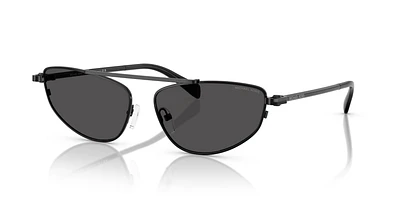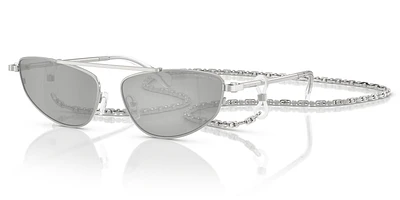Home
Mingus In Argentina: The Buenos Aires Concerts [2 CD]
Barnes and Noble
Mingus In Argentina: The Buenos Aires Concerts [2 CD]
Current price: $29.99
![Mingus In Argentina: The Buenos Aires Concerts [2 CD]](https://prodimage.images-bn.com/pimages/0617270123089_p0_v1_s600x595.jpg)
![Mingus In Argentina: The Buenos Aires Concerts [2 CD]](https://prodimage.images-bn.com/pimages/0617270123089_p0_v1_s600x595.jpg)
Barnes and Noble
Mingus In Argentina: The Buenos Aires Concerts [2 CD]
Current price: $29.99
Size: OS
Loading Inventory...
*Product information may vary - to confirm product availability, pricing, shipping and return information please contact Barnes and Noble
Released in time for Record Store Day 2025, the two-disc
Mingus in Argentina: The Buenos Aires Concerts
is issued officially for the first time, offering two concerts on
Mingus
's South American tour. Documentation about this quintet -- with saxophonist
Ricky Ford
, trumpeter
Jack Walrath
, pianist
Robert Neloms
, and drummer
Dannie Richmond
-- while not absent is somewhat scarce. Produced by
Zev Feldman
, it was recorded by late Argentine engineer
Carlos Melero
and painstakingly remastered from original tapes by
Matthew Lutthans
.
Following an introduction, they deliver a seven-and-a-half-minute swinging dirge in "Goodbye Pork Pie Hat." It contains a killer blues solo from
Walrath
as the band careens into early New Orleans jazz, swing, and back.
Neloms
' sensitive solo grounds the proceeding, then gives way to an elegant, graceful "Duke Ellington's Song of Love" with soulful soloing from
Ford
as
,
, and
Richmond
engage in harmonic interplay, laying under then stretching the time. Following the pianist's classy, harmonically rich solo, he bids
to take one and offers buoyant support as the trumpeter delivers in spades. The ten-minute "Three or Four Shades of Blues" is rendered with more space with this guitar-less lineup. One of
' great gifts was in being able to notate in great, sometimes obsessive detail -- jazz history via vamps, tiny accents, turnarounds, harmonic asides, and much more. Here, they careen across progressive jazz, swing, and New Orleans, hard bop, modal, and vanguard jazz, with gospel and blues added for measure.
and
engage in a knotty joint break that gives way to their articulation of gospel and parlor music swinging and quoting from bop, swing, and
Miles Davis
' "All Blues" before moving outside. This version of "For Harry Carney" (from
Changes Two
) is moodier and more dramatic than the studio read. The interplay between
is snaky as
lay down a hypnotic vamp that
dances around and through as
punctuates the turnarounds, before the band indulges in fiery improvisation. The set's highlight is the 22-minute "Cumbia and Jazz Fusion" that effortlessly folds in Mexican folk traditions from cumbia, mariachi, and banda as the quintet delves into and unearths hidden harmonic details in their extended improvisation. Disc two is initiated by an incomplete and raucous rendition of "Sue's Changes." Missing its first three-plus minutes, it indulges the band's rowdiest playing. This version of "Fables of Faubus" juxtaposes expansive harmony with driving hard bop that swings like mad. Further,
's solo is a finger-popping wonder. Both sets end with the bandleader offering his own short piano improvisations.
The booklet for
contains rare photos and a program reproduction with liner essays by
Brian Priestley
, author of Mingus: A Critical Biography, and journalist/critic
Carlos Parrisi
, who attended and reviewed the show, and reminiscences by
, the quintet's last surviving members. For
fans, this is an essential document to pour over and absorb, underscoring his jazz mastery to the end. ~ Thom Jurek
Mingus in Argentina: The Buenos Aires Concerts
is issued officially for the first time, offering two concerts on
Mingus
's South American tour. Documentation about this quintet -- with saxophonist
Ricky Ford
, trumpeter
Jack Walrath
, pianist
Robert Neloms
, and drummer
Dannie Richmond
-- while not absent is somewhat scarce. Produced by
Zev Feldman
, it was recorded by late Argentine engineer
Carlos Melero
and painstakingly remastered from original tapes by
Matthew Lutthans
.
Following an introduction, they deliver a seven-and-a-half-minute swinging dirge in "Goodbye Pork Pie Hat." It contains a killer blues solo from
Walrath
as the band careens into early New Orleans jazz, swing, and back.
Neloms
' sensitive solo grounds the proceeding, then gives way to an elegant, graceful "Duke Ellington's Song of Love" with soulful soloing from
Ford
as
,
, and
Richmond
engage in harmonic interplay, laying under then stretching the time. Following the pianist's classy, harmonically rich solo, he bids
to take one and offers buoyant support as the trumpeter delivers in spades. The ten-minute "Three or Four Shades of Blues" is rendered with more space with this guitar-less lineup. One of
' great gifts was in being able to notate in great, sometimes obsessive detail -- jazz history via vamps, tiny accents, turnarounds, harmonic asides, and much more. Here, they careen across progressive jazz, swing, and New Orleans, hard bop, modal, and vanguard jazz, with gospel and blues added for measure.
and
engage in a knotty joint break that gives way to their articulation of gospel and parlor music swinging and quoting from bop, swing, and
Miles Davis
' "All Blues" before moving outside. This version of "For Harry Carney" (from
Changes Two
) is moodier and more dramatic than the studio read. The interplay between
is snaky as
lay down a hypnotic vamp that
dances around and through as
punctuates the turnarounds, before the band indulges in fiery improvisation. The set's highlight is the 22-minute "Cumbia and Jazz Fusion" that effortlessly folds in Mexican folk traditions from cumbia, mariachi, and banda as the quintet delves into and unearths hidden harmonic details in their extended improvisation. Disc two is initiated by an incomplete and raucous rendition of "Sue's Changes." Missing its first three-plus minutes, it indulges the band's rowdiest playing. This version of "Fables of Faubus" juxtaposes expansive harmony with driving hard bop that swings like mad. Further,
's solo is a finger-popping wonder. Both sets end with the bandleader offering his own short piano improvisations.
The booklet for
contains rare photos and a program reproduction with liner essays by
Brian Priestley
, author of Mingus: A Critical Biography, and journalist/critic
Carlos Parrisi
, who attended and reviewed the show, and reminiscences by
, the quintet's last surviving members. For
fans, this is an essential document to pour over and absorb, underscoring his jazz mastery to the end. ~ Thom Jurek

















